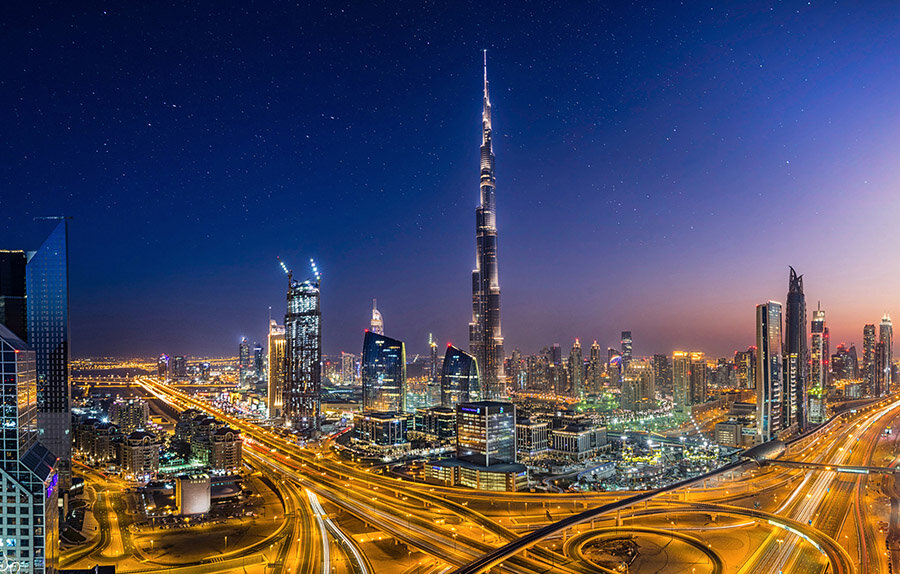Foreigners in Dubai Are Impacting the Labor Market and Lifestyle: Competition, Rent Surge, and Changing Incentives

Foreign workers have long considered Dubai a tax-free paradise with generous perks. But that perception is rapidly shifting. According to Bloomberg, recruiters and employers say the city is now grappling with overcrowded job markets, stagnant wages, and rising living costs.
Since 2020, more than 400,000 people have moved to Dubai, pushing the total population beyond 3.8 million. What was once an attractive hub for professionals has become a battleground of competition, with up to 2,000 applicants per job, compared to just 100 a few years ago.
Salaries Flatten as Competition Heats Up
Trefor Murphy, CEO of Cooper Fitch, notes that employers no longer need to offer inflated salaries and packages to attract talent. In many sectors, salaries have plateaued, and the only real incentive left is the absence of income tax.
Even in-demand professionals, such as lawyers or engineers, are seeing reduced relocation perks. Housing allowances, tuition fees, and travel budgets are being slashed — or dropped entirely.
Living in Dubai Is Getting More Expensive
The cost of living has soared:
94% increase in villa rents
103% increase in sale prices
66% rise in apartment rents
(Data from JLL)
Dubai now ranks 15th globally in Mercer’s 2024 cost of living index — the most expensive city in the Middle East, ahead of Tel Aviv and Riyadh.
Due to rising rents, many expats are relocating to the outskirts of Dubai or even to more affordable emirates like Sharjah.
Education Challenges and Waiting Lists
Access to public schools is nearly impossible for foreigners, and top private schools now have long waiting lists. One international school recently introduced fees of $33,000 per year for new expat students.
Golden Visa Tightening and Visa Policy Shifts
Dubai’s long-term visa programs, such as the Golden Visa, have become more selective:
Full upfront payment is now required for property-based visas (no mortgages allowed).
Off-plan property investments are allowed but must include at least a 50% down payment or a bank guarantee.
Entrepreneurs supported by certified incubators can now qualify with a minimum investment of 500,000 AED ($136,130).
Other updates:
High school students with a GPA of 3.8+ can now sponsor family members.
Simplified application processes for PhDs, doctors, engineers, and creatives with valid UAE contracts.
Work is now prohibited on tourist visas, and salary thresholds have been raised for visa eligibility (now 30,000 AED/month or $8,000).
Who Makes Up Dubai's Population?
According to Dubai Statistics Center, 90% of Dubai's population are expatriates. In 2023:
Total population: 3.6 million
Expatriates: 3.3 million
Breakdown by nationality in Dubai (2023, via Khaleej Feed):
Indians – 27%
Pakistanis – 12%
Bangladeshis – 7%
Filipinos – 6%
Saudis – 5%
British – 4%
Americans – 3%
Across the UAE in 2025 (via Global Media Insight):
Indians make up 38% of expats
Pakistan – 17%, Bangladesh – 7.38%
Philippines – 6.89%, Iran – 4.72%
What's Next for Dubai’s Expat-Driven Growth?
Dubai remains attractive, but the economic advantage is narrowing. Rent inflation, flattened salaries, limited schooling options, and changing visa rules create long-term pressure on foreign residents.
As Karen Young of Columbia University points out, Dubai must decide if it wants residents to stay long-term. New visa reforms aim to make that possible — but only for a select group of skilled or wealthy expats.
In an economy where 90% of residents are foreigners, that decision will define Dubai’s future.








